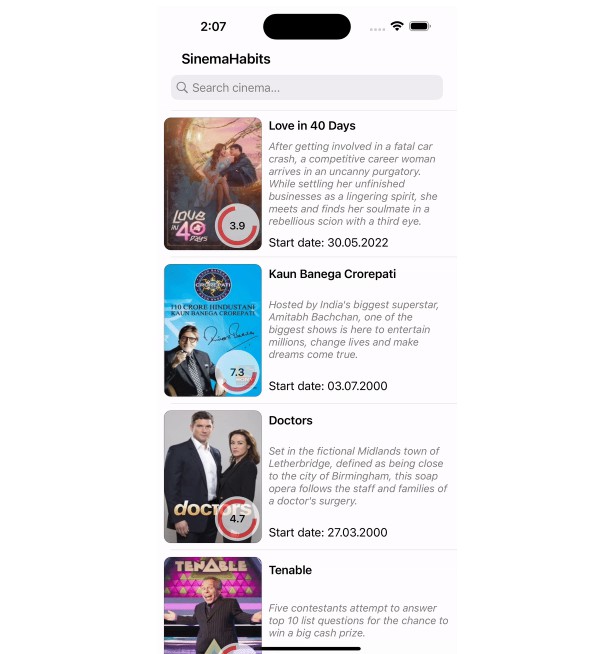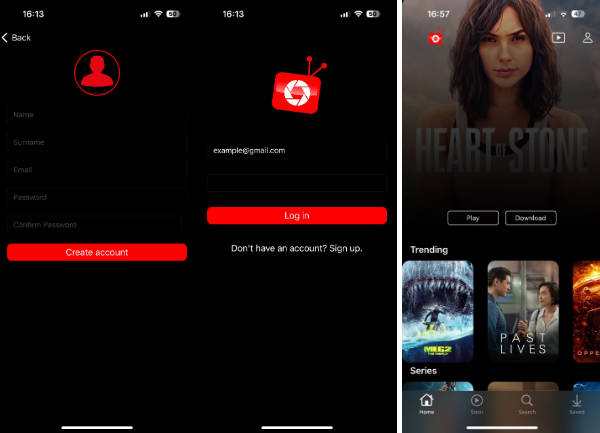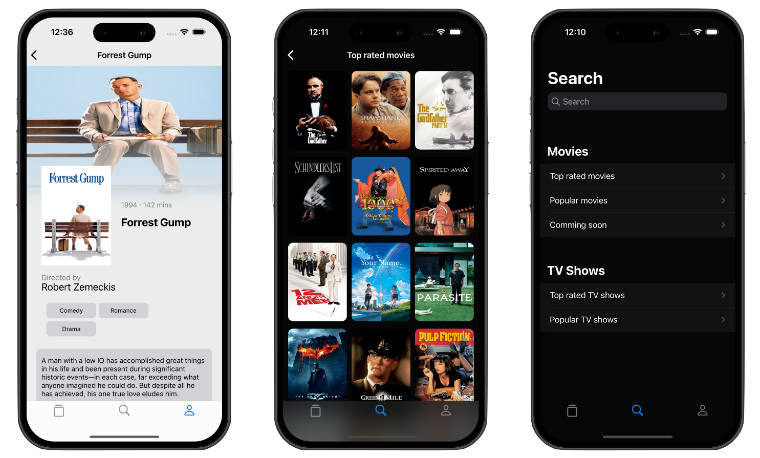Code challenge iOS – Movies app
Project structure
- The
Commonfolder contains shared code across all features.
.
├── Constants.swift -> global constants used in the app
├── Entities
│ ├── ContentAdapter.swift -> a protocol for adapting movies/series data to UI Components
│ ├── ContentEntity.swift -> a class representing the local DB model for realm
│ ├── ContentResponse.swift -> a struct to handle responses data from the API (acts as a wrapper for movies/series)
│ ├── Movie.swift -> a struct to handle movies data from the API
│ └── Serie.swift -> a struct to handle series data from the API
├── Enums
│ ├── Category.swift -> an enum to handle Categories (popular, top rated and upcoming)
│ └── ResourceType.swift -> an enum to handle the type of resource for the API (movies or series)
├── Networking
│ ├── HTTPClient
│ │ ├── HTTPClient.swift -> a class to handle http requests
│ │ └── Resource.swift -> a protocol to handle resources for the http client
│ ├── Repositories
│ │ └── ContentRepository.swift -> a class containing all http requests related to movies and series
│ └── Resources
│ └── ContentResource.swift -> an enum containing all http resources related to movies and series
└── Persistance
└── Cache.swift -> a class to handle local data for realm (save, get, search)
- The
Featuresfolder contains the different VIPER modules for the app (content list and detail).
.
├── Content -> this module is for the movies/series list
│ ├── ContentInteractor.swift -> An interactor class to handle data
│ ├── ContentModel.swift -> A model to be used for the interactor
│ ├── ContentPresenter.swift -> A presenter class to handle business logic
│ ├── ContentRouter.swift -> A router class to handle navigation between modules
│ ├── ContentView.swift -> A view class to handle UI
│ └── Views
│ └── ContentListItem.swift -> A view class representing every item of the content list
├── ContentDetail -> this module is for the movies/series detail
│ ├── ContentDetailInteractor.swift
│ ├── ContentDetailPresenter.swift
│ ├── ContentDetailRouter.swift
│ └── ContentDetailView.swift
└── MainNavigation
└── MainNavigation.swift -> this is a tabbed navigation component (2 tabs for movies/series)
Preguntas
- En qué consiste el principio de responsabilidad única? Cuál es su propósito?
RESPUESTA: Consiste en que cada clase o componente de nuestro código tenga un solo objetivo o función. De esta forma cada componente evita tener dependencias a otras funcionalidades que están fuera de su alcance y el código se hace más comprensible y reutilizable para los desarrolladores.
- Qué características tiene, según su opinión, un “buen” código o código limpio
RESPUESTA: Para tener un código limpio se necesita tener una arquitectura bien definida y consensuada entre el equipo de desarrollo, luego el código debe ser testeable y si no lo fuera se debe replantear la solución al problema. También es necesario seguir una guia de estilos para estandarizar el código y documentar siempre que fuera necesario los elementos de nuestro código (clases, funciones, parametros, etc..)


